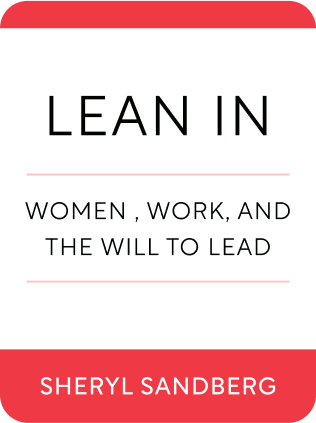

This article is an excerpt from the Shortform book guide to "Lean In" by Sheryl Sandberg. Shortform has the world's best summaries and analyses of books you should be reading.
Like this article? Sign up for a free trial here .
Why do women leave the workforce early? What effect does leaving early have on women’s future?
From childhood, girls get the message that they’ll one day have to choose between motherhood and their job. Studies show women are already considering the work/family trade-offs by college. While planning ahead is good, when women plan too far ahead, they stop reaching for opportunities.
Here is how early leave can stifle women’s future.
Women “Leave Before They Leave”
Women leave the workforce slowly, making small decisions along the way to account for future husbands and children. They “leave before they leave,” refusing promotions, not taking risks, and making decisions to account for children who aren’t here yet. This mental preparation for a family can occur years before the family materializes.
When a woman leans back in preparation for a family, she lands in a different place in her career than if she had continued to pursue challenges and opportunities. She ends up in a job that’s less demanding, but not as rewarding or fulfilling.
When she re-enters the workforce after having a child, she returns to this less-than-rewarding job. Her one-time peers in pay and prestige have moved ahead, and she may find herself working for people with less experience. She may feel underutilized and underappreciated.
Ultimately, she’s more likely to leave this unfulfilling job if finances allow, because becoming a stay-at-home mother becomes more appealing than returning to a job she doesn’t love.
This is a terrible irony for women: The decisions they made to stay in the workforce—decisions they think will be good for them as working moms—can land them in a job that’s unfulfilling and spur their decision to leave the workforce permanently.
Compounding matters, after having children women run into roadblocks in the workplace that make balancing family and career even more difficult. Rigid schedules, lack of paid family leave, and expensive childcare derail women’s best efforts to stay in the workforce.
Stay in the Race and Give Yourself Options
The months and years leading up to having kids are the time to lean in, not lean back. All that time spent slowing down a career in preparation for family could be time spent building a woman’s career. Then, after she has children, she returns to a job she loves and is much less likely to leave the workforce. With senior position and pay, she has more options and flexibility as a parent to create a workable situation to balance family life
The time before having a child can even be a great time to take on a new job or opportunity. If you find a new role challenging and exciting, you’ll be more excited to return after giving birth.
It’s hard to leave your child. Only a compelling, rewarding job will make it a fair choice. And you can always change your mind later.
Don’t enter the workforce looking for the exit; accelerate until you have to decide. Then there will be a fair decision to be made. (Caveat: Sandberg acknowledges that there are many reasons to leave the workforce and circumstances are individual. How you want to parent is a personal decision to be respected.)

———End of Preview———
Like what you just read? Read the rest of the world's best book summary and analysis of Sheryl Sandberg's "Lean In" at Shortform .
Here's what you'll find in our full Lean In summary :
- How professional, personal, and societal hurdles are holding women back
- Why you need to commit to your career with risks and ambition
- How your career is more like a jungle gym than a ladder






